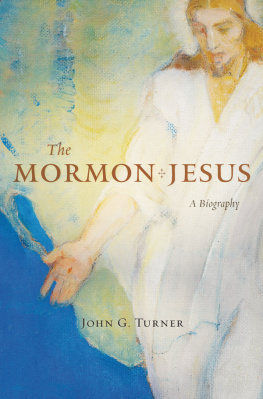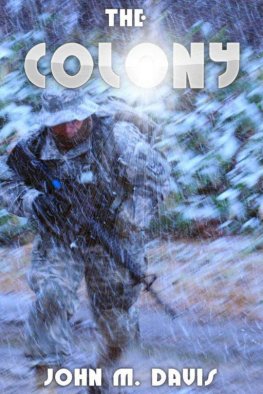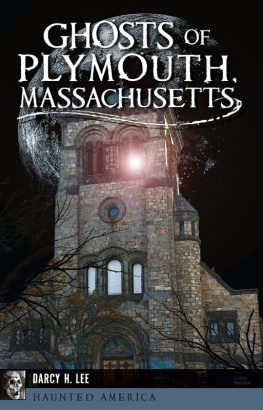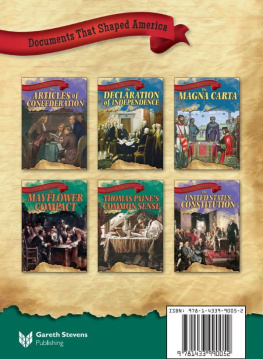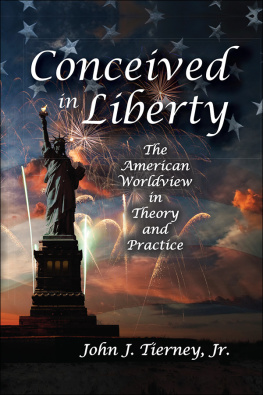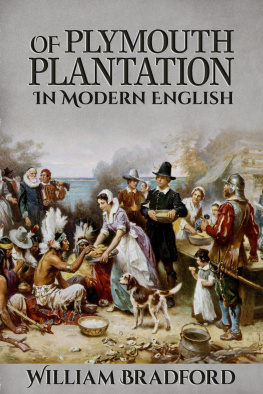John G. Turner - They Knew They Were Pilgrims: Plymouth Colony and the Contest for American Liberty
Here you can read online John G. Turner - They Knew They Were Pilgrims: Plymouth Colony and the Contest for American Liberty full text of the book (entire story) in english for free. Download pdf and epub, get meaning, cover and reviews about this ebook. year: 2020, publisher: Yale University Press, genre: Religion. Description of the work, (preface) as well as reviews are available. Best literature library LitArk.com created for fans of good reading and offers a wide selection of genres:
Romance novel
Science fiction
Adventure
Detective
Science
History
Home and family
Prose
Art
Politics
Computer
Non-fiction
Religion
Business
Children
Humor
Choose a favorite category and find really read worthwhile books. Enjoy immersion in the world of imagination, feel the emotions of the characters or learn something new for yourself, make an fascinating discovery.

- Book:They Knew They Were Pilgrims: Plymouth Colony and the Contest for American Liberty
- Author:
- Publisher:Yale University Press
- Genre:
- Year:2020
- Rating:3 / 5
- Favourites:Add to favourites
- Your mark:
- 60
- 1
- 2
- 3
- 4
- 5
They Knew They Were Pilgrims: Plymouth Colony and the Contest for American Liberty: summary, description and annotation
We offer to read an annotation, description, summary or preface (depends on what the author of the book "They Knew They Were Pilgrims: Plymouth Colony and the Contest for American Liberty" wrote himself). If you haven't found the necessary information about the book — write in the comments, we will try to find it.
They Knew They Were Pilgrims: Plymouth Colony and the Contest for American Liberty — read online for free the complete book (whole text) full work
Below is the text of the book, divided by pages. System saving the place of the last page read, allows you to conveniently read the book "They Knew They Were Pilgrims: Plymouth Colony and the Contest for American Liberty" online for free, without having to search again every time where you left off. Put a bookmark, and you can go to the page where you finished reading at any time.
Font size:
Interval:
Bookmark:
THEY KNEW THEY WERE PILGRIMS
Plymouth Colony and the Contest for American Liberty
JOHN G. TURNER

Published with assistance from the Ronald and Betty Miller Turner Publication Fund, and from the foundation established in memory of Amasa Stone Mather of the Class of 1907, Yale College.
Copyright 2020 by John G. Turner.
All rights reserved.
This book may not be reproduced, in whole or in part, including illustrations, in any form (beyond that copying permitted by Sections 107 and 108 of the U.S. Copyright Law and except by reviewers for the public press), without written permission from the publishers.
Yale University Press books may be purchased in quantity for educational, business, or promotional use. For information, please e-mail (U.K. office).
Set in Janson type by Integrated Publishing Solutions.
Printed in the United States of America.
Library of Congress Control Number: 2019948863
ISBN 978-0-300-22550-1 (hardcover : alk. paper)
A catalogue record for this book is available from the British Library.
This paper meets the requirements of ANSI/NISO Z39.48-1992 (Permanence of Paper).
10 9 8 7 6 5 4 3 2 1
E VEN WHEN A BOOK bears a single name, scholarship is by its nature a collaborative enterprise, building on the work of women and men from the distant past and relying on the help of archivists, librarians, and colleagues. Over the course of this project, many institutions made their documents and photographs available to me. I am especially grateful to Carolle Morini of the Boston Athenum; Jay Moschella of the Boston Public Library; Lisa Lucassen of the Leiden Regional Archives; Marjory OToole of the Little Compton Historical Society; Elaine Heavey, Anna Clutterbuck-Cook, and Daniel Hinchen of the Massachusetts Historical Society; Mark Proknik of the New Bedford Whaling Museum; Donna Curtin of Pilgrim Hall; John R. Buckley of the Plymouth County Registry of Deeds; Douglas Mayo of the Rockefeller Library at Colonial Williamsburg; and Danielle Kovacs of the University of Massachusetts (Amherst) Special Collections.
Many individuals gamely read drafts or partial drafts of this book: Sue Allan, Jim Baker, Jeremy Dupertuis Bangs, Alex Beam, Margaret Bendroth, Charlotte Carrington-Farmer, David Hall, Mack Holt, David Lupher, John McWilliams, Lincoln Mullen, Michael Paulick, Paula Peters, Adrian Weimer, and Michael Winship. Other people who provided invaluable advice and assistance include Francis Bremer, Jeff Cooper, John Craig, Jaap Jacobs, Thomas Kidd, Merja Kyt, Andrew Lipman, Jo Loosemore, Vicki Oman, Richard Pickering, Jenny Pulsipher, Anne Reilly, David Silverman, Baird Tipson, and Walter Powell. Andrew C. Smith patiently worked through many iterations of the maps with me.
One of the best parts of researching any subject is the chance to meet knowledgeable and fascinating people, both in person and remotely. One particular pleasure in working on this book was the opportunity to interact with Jeremy Bangs, the director of the Leiden American Pilgrim Museum and the foremost expert on the Pilgrims and the colony they founded. This project was made easier by Jeremys many publications, including his transcriptions of Plymouth Colony records. Also, Jeremy patiently fielded queries, deciphered difficult handwriting, and was willing to push back against some of my interpretive judgments. I also enjoyed a delightful tour of Scrooby, Gainsborough, and other locations with Sue Allan, who generously shared advice, documents, and transcriptions. Michael Paulick likewise shared many transcriptions and documents pertaining to Robert Cushmans years in Canterbury.
The British Association of American Studies and the Eccles Centre for American Studies provided me with a fellowship that enabled a months research at the British Library and other London repositories. I am also grateful for a grant received from George Mason Universitys College of Humanities and Social Sciences. The completion of this book in time for the four-hundredth anniversary of the Mayflower crossing was made possible by a Public Scholar fellowship from the National Endowment of the Humanities. Any views, findings, conclusions, or recommendations expressed in this book do not necessarily reflect those of the National Endowment of the Humanities.
Two individuals supported this project at an early stage: my agent, Giles Anderson; and my editor, Jennifer Banks. I am thankful to both of them.
John Robinson, the Leiden pastor to the Pilgrims, once suggested that wiving and thriving go hand in hand. He was correct. For her patience with this project, and for our lives together, I am grateful to my wife, Elissa, the best of wives and the best of readers.
T WO PARTLY ANACHRONISTIC TERMS feature prominently in this book. The Mayflower passengers and the other early English settlers of Plymouth Colony did not understand themselves as the Pilgrims. That label emerged around the turn of the nineteenth century. The colonists, however, did think of themselves as pilgrims. For them, as for many other Protestants, all Christians were strangers and pilgrims on the earth (Hebrews 11:13), a phrase that appears in the colonys first promotional tract. With these qualifications in mind, for reasons of familiarity I refer to the early English settlers of Plymouth Colony as the Pilgrims.
Seventeenth-century sources most typically use place-specific names such as Pokanoket, Nauset, and Patuxet for the Native communities and peoples of present-day southeastern Massachusetts. Although variations of the term Wampanoag appear in some sources, only later did Wampanoag become the most common designation for these communities and those on the islands to the south of Cape Cod. Again, for reasons of familiarity, I use Wampanoag as a way to discuss the Native communities that found themselves within Plymouth Colonys patent.
For English names, as in the cases of John Myles and Myles Standish, I have spelled names as individuals signed them (or signed them most frequently) or as they appear most commonly in seventeenth-century documents. Few seventeenth-century Native men and women left behind signatures. English records render their names many different ways. I have selected a consistent spelling.
In March 1621, Pilgrim governor John Carver and his Pokanoket counterpart formed an alliance. The Pilgrims called the Pokanoket sachem by his title Massasoit, the Native word for great leader. The sachems Native name at the time is unknown, but he later adopted the name Ousamequin, meaning Yellow Feather. I refer to him as Massasoit when discussing Plymouth Colonys first decade, then introduce the name Ousamequin in the 1630s. Ousamequins sons Wamsutta and Metacom took on the names Alexander and Philip, respectively, shortly after their fathers death. Most English documents use Philip; some deeds identify the sachem as Philip alias Metacom. For reasons of familiarity and clarity, I refer to him as Philip. While names matter, I am confident that Philip alias Metacom cared far more about English encroachment on his land and authority than about what the English called him.
During the seventeenth century, English people used the Old Style Julian calendar in which the new year began on March 25. At the time, the Julian calendar was also ten days behind the New Style or Gregorian calendar. The Pilgrims first came ashore at the site of their settlement on December 11, according to the Julian calendar. Since the late eighteenth century, groups in Plymouth have commemorated the event with an annual Forefathers Day celebration. For the first such celebration in 1769, the Old Colony Club did not adjust the date correctly and held its event on December 22. When the Pilgrim Society began its own commemoration in 1820, its organizers calculated the date to December 21. The error gives individuals two chances to celebrate rather than one. In order to avoid less fortuitous confusion, I have adjusted the year for dates between January 1 and March 24, while I leave the day unchanged in the text. In the notes, I give both years separated by a slash.
Next pageFont size:
Interval:
Bookmark:
Similar books «They Knew They Were Pilgrims: Plymouth Colony and the Contest for American Liberty»
Look at similar books to They Knew They Were Pilgrims: Plymouth Colony and the Contest for American Liberty. We have selected literature similar in name and meaning in the hope of providing readers with more options to find new, interesting, not yet read works.
Discussion, reviews of the book They Knew They Were Pilgrims: Plymouth Colony and the Contest for American Liberty and just readers' own opinions. Leave your comments, write what you think about the work, its meaning or the main characters. Specify what exactly you liked and what you didn't like, and why you think so.

